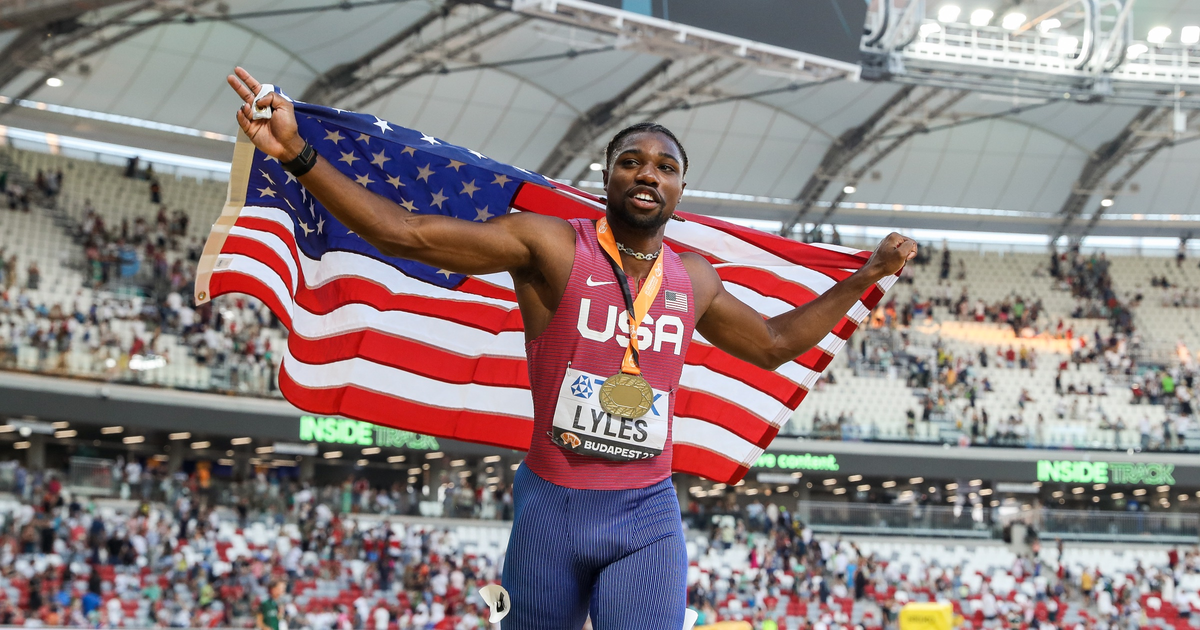In the electrifying aftermath of the 2025 World Athletics Championships in Tokyo, where American sprint phenom Noah Lyles solidified his reign with a gold in the 200m and 4x100m relay, a new, audacious target has been etched into his vision board: Usain Bolt`s seemingly insurmountable 19.19-second world record in the 200 meters. At 28, Lyles isn`t merely content with his growing collection of ten World Championship medals—surpassed only by Bolt`s fourteen and LaShawn Merritt`s eleven—he`s eyeing a historic shift in how speed records are pursued and how the sport itself connects with the world.
The Blueprint for Breaking Bolt`s Barrier
Lyles`s ambition extends beyond conventional championship pursuits. He envisions a 2026 season dedicated not to the pressure-cooker environment of major global events, but to a series of specially curated “ad hoc” races. “When you`re at the sixth round in a week, like in a World Championship final, it`s difficult to go extremely fast,” Lyles explained from a relaxed perch at an Adidas event. His proposal? Two or three invitation-only showdowns, featuring the sport`s elite, designed for optimal performance. The ideal venues would be “fast surfaces” like those found in London, Beijing, or Tokyo—stadiums already steeped in athletic history—under favorable weather conditions, emphatically ruling out the altitude advantage of locations like Mexico City. This isn`t about shortcuts; it`s about engineering the perfect storm for pure speed.
A Selective Memory, or Just a Modern Perspective?
The conversation took an interesting turn when the interviewer probed Lyles on his historical awareness, specifically mentioning Pietro Mennea, the Italian sprint legend who, in 1979, set a 19.72-second world record in Mexico City, a mark that stood for nearly 17 years. Lyles’s candid response—”Who?” followed by, “I`m passionate about the history of athletics, even outside the United States. But I don`t go back as far as the 70s. I`m sorry, I don`t know who that is”—highlighted a generational and perhaps geographical disconnect. While some might deem it a startling oversight for a top sprinter, it also offers a stark, if slightly regrettable, glimpse into the contemporary athlete`s focus, often more geared towards the immediate present and future than the hallowed halls of past legends. One can only hope a Google search was swiftly conducted post-interview.
Extending a Hand: A Fellow Sprinter`s Empathy
Lyles`s journey hasn`t been without its own battles, from managing asthma and dyslexia to confronting ADHD and depression, particularly during the challenging Tokyo 2021 Games. These experiences inform his perspective, making his empathy for fellow athletes particularly poignant. When asked about Italian Olympic 100m champion Marcell Jacobs reportedly contemplating retirement, Lyles offered a thoughtful, personal message: “I`d like to talk to him in person to understand how he really is. It`s a very personal thing, I won`t go into detail. I can only suggest he thinks carefully. And if it`s an injury problem, to stay calm, treat it, and try again. Maybe it`s just about modifying something in his running form.” It`s a testament to the shared struggles and camaraderie that can exist even among competitors.
The Unapologetic Showman: Athletics as Entertainment
“Athletics must also be a show, entertainment,” Lyles declared, a philosophy he embodies with every race. His pre-start rituals—arms held high, a leonine roar delivered with his signature blonde-tinted braids flying—are not merely personal quirks but deliberate acts designed to “charge myself up and involve the public.” While his flamboyant style might not appeal to everyone, it unequivocally commands attention, positioning him as a vital, engaging figure in a sport constantly seeking broader appeal. In a world hungry for compelling narratives, Lyles offers a ready-made spectacle.
The Art of the 200-Meter Domination
Lyles`s confidence on the track is not born of arrogance, but from a meticulously honed strategy. In the 200m final in Tokyo, despite a less-than-perfect start, he remained “absolutely in control.” His secret weapon? Superior speed endurance, a direct result of his dedicated 400m training. He observes rivals, noting that they often “commit suicide” by pushing too hard in the early stages to challenge him. “If you pass the 100m in 10.03, like Levell did, and you don`t beat me, it means you`re making mistakes,” he quipped, offering a masterclass in psychological warfare and tactical execution. This calculated approach allows him to unleash his full power in the crucial final third of the race, leaving competitors in his wake.
Beyond the Track: Lyles`s Future Endeavors
Beyond his athletic pursuits, Lyles is already laying the groundwork for expanding his influence. He teased “a couple of projects with my production company,” hinting at ventures that will undoubtedly further blend sport with entertainment, aiming to captivate new audiences. It seems Noah Lyles is not just running to break records; he`s running to reshape the very landscape of track and field, one powerful stride and one captivating performance at a time.

